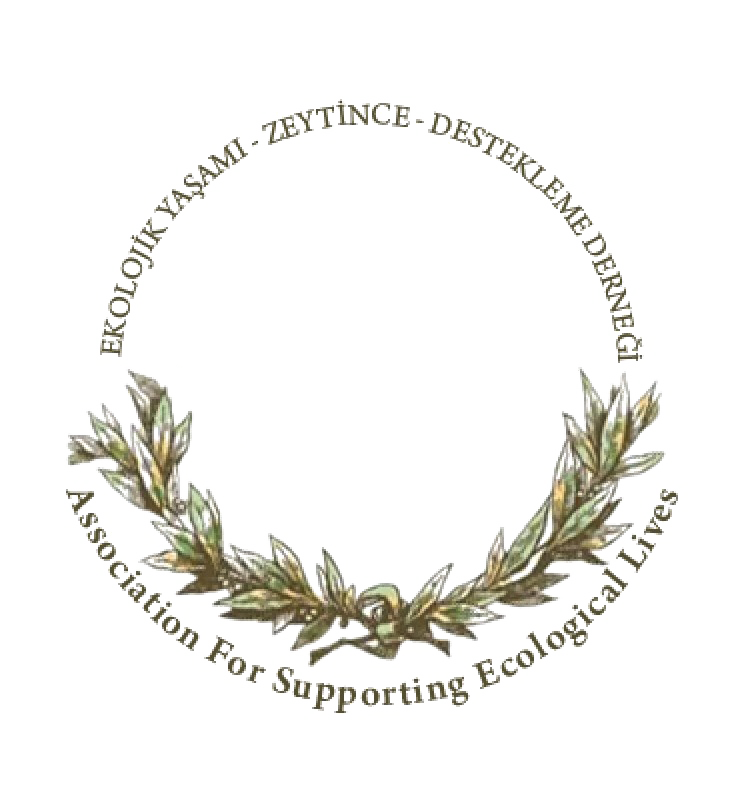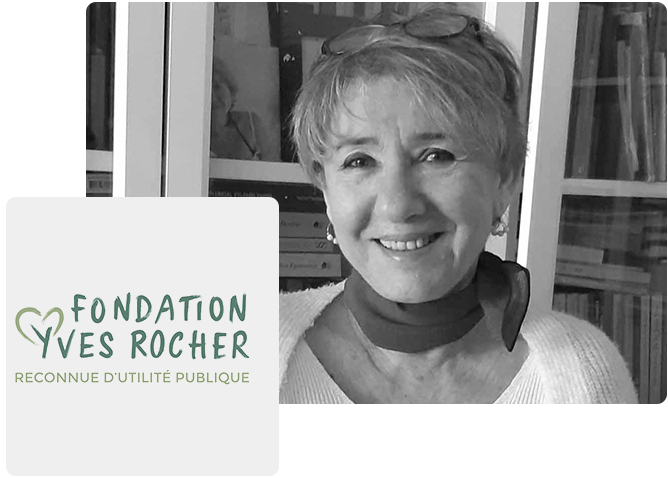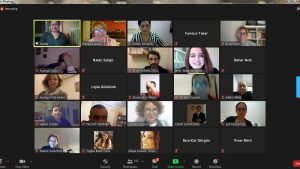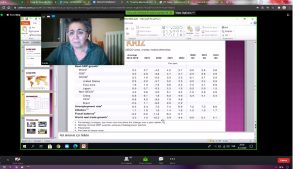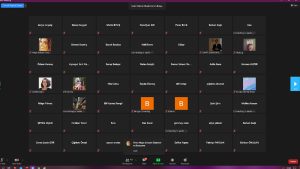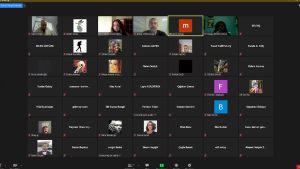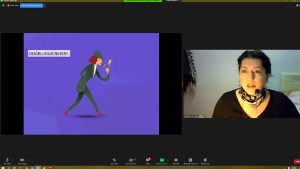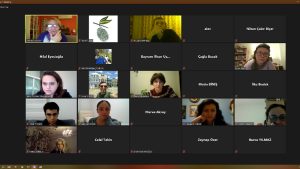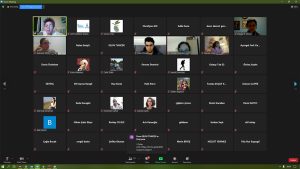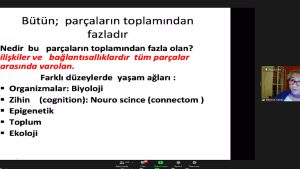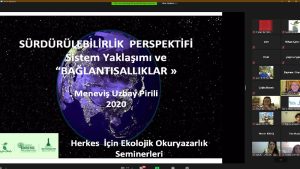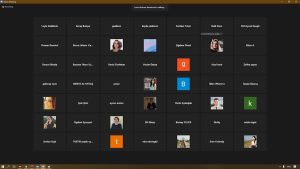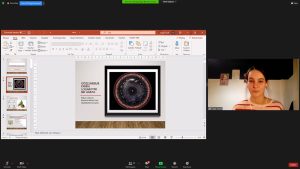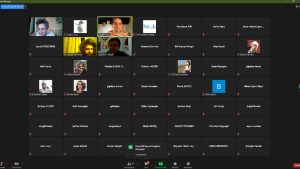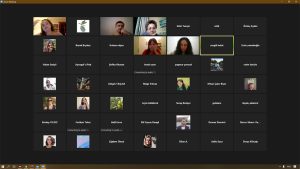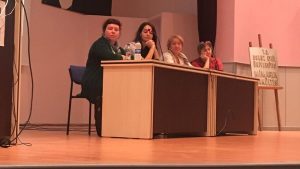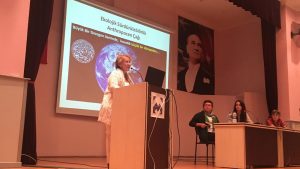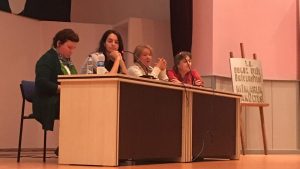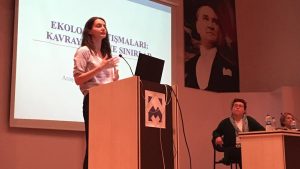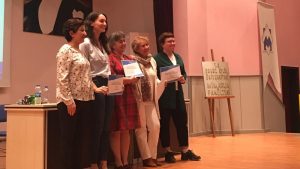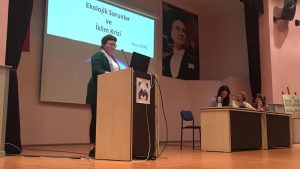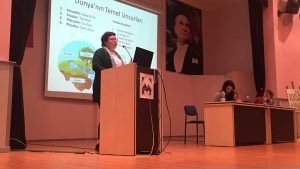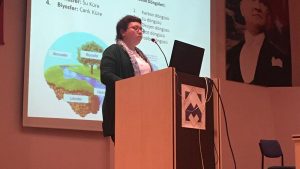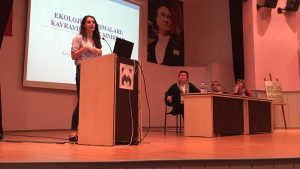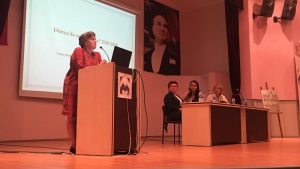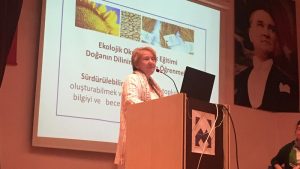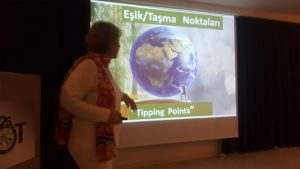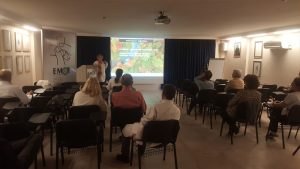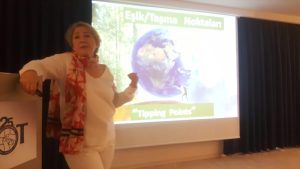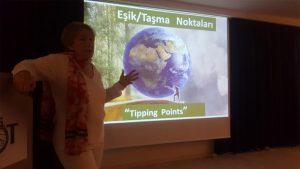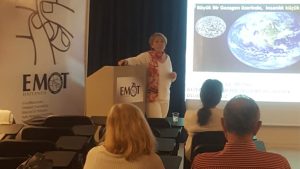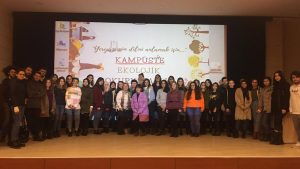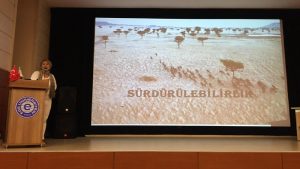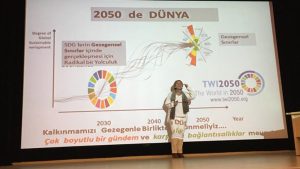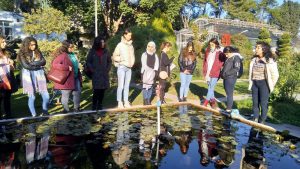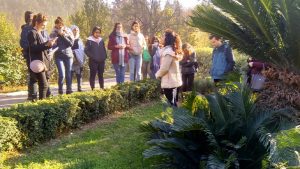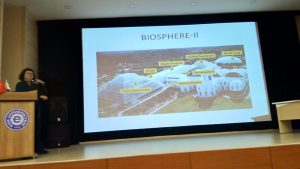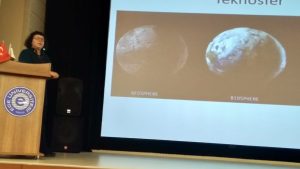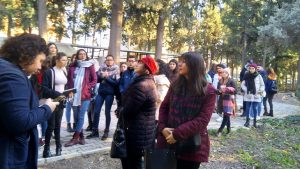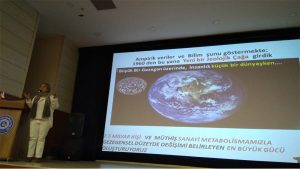
Ecological Literacy
YVES ROCHER FOUNDATION
WOMEN OF THE SOIL 2022 WINNERS ANNOUNCED!
One of the Founders of our Association, Assoc. Meneviş Uzbay Pirili won the Woman of the Land Award for her pioneering work in ecological literacy education in Izmir.
With their inspiring projects that support soil, biodiversity, and women’s power, the 2022 winners of the Yves Rocher Foundation Women of the Soil Award, organized for the 7th time this year in Turkey, are Ebru Baybara Demir (Biodegradable Waste Management Project from Soil to Soil), Selvi Gürevin (Zero Waste Home – Soil Movement), Meneviş Uzbay Pirili (Ecological Literacy Training to Understand the Language of the Earth).
Ecological Literacy Trainings
Ecological Literacy is a sustainable life education and teaching that adopts a participatory and interactive education method for people of all ages and groups. Its aim is to teach the basic processes and working principles of our planet and nature that have made life possible on earth for billions of years, in a way that EVERYONE CAN UNDERSTAND. In other words, it aims to understand the unique language of nature and aims to restore the broken relations with nature.
Ecological Literacy trainings basically aim to improve the awareness of the participants about human-nature relations and ongoing ecological problems, and to participate as active subjects in solutions for sustainable lifestyles in both individual and urban life. Spreading the development of Ecological Literacy training in Izmir will contribute to the development of sustainability culture and the formation and dissemination of an ecological community in our city.
One of the founders of the ZEYTINCE association, with her team of trainers led by Assoc. Meneviş Uzbay Pirili, has been continuing Ecological Literacy training and education for young people and adults in Izmir, in cooperation with various institutions, since 2017. As of the end of 2021, nearly 2,000 people attended the training programs conducted in cooperation with the central and local governments and many relevant stakeholders in the region. (Table 1)
Table 1: 2017 – 2021 : Ecological Literacy Trainings Conducted by ZEYTINCE E.E.Y.D
|
Activity Name |
Supporting Institutions |
Number of Participants (person) |
|
E.F.E Seminars 2017 and 2018 |
Izmir Turkish Collage -Ege University Faculty of Economics and Administrative Sciences |
60 |
|
AEGEE Seminar (2018) |
-AEGEE -Ege University |
40 |
|
Nature and Science Schools: Olive Knows Something Project 2018 -2019 |
TUBITAK (Scientific and Technological Research Council of Turkey) Ege University Zeytince EYDD |
50 |
|
Urban Ecological Literacy Seminars (THREE times 2018, 2019 and 2020) |
-Izmir Metropolitan Municipality -Izmir Mediterranean Academy – Zeytince EYDD |
300 |
|
Ecological Literacy on Campus 2019- 2020 |
-Ege University Rectorate |
400 |
|
Daily seminars for various Institutions (2019) |
– Zeytince EYDD |
300 |
|
Ecological Literacy Training: Training for Izmir Municipalities Employees (November-December 2021) |
– Izmir Metropolitan Municipality |
400 |
“We use the concept of literacy for languages.
Our planet and nature, which we consider silent, has started to warn us in its own unique language for the last thirty years.
Of course, the language of nature is not verbal; The codes of the language of nature lie in the basic operating principles of the natural processes that have made life possible on earth for billions of years.
Ecological literacy is a participatory and interactive sustainable life education. This education aims to teach the ecological processes that have made life possible on earth for billions of years and the working principles of NATURE in a way that “EVERYONE” can understand.
It aims to design and implement sustainable, creative initiatives in our economic and social lives – inspired by processes in the natural world, designs existing in nature, and nature’s strategies that have made life possible on the planet for billions of years.
Sustainable living means realizing economies, technologies, cities, institutions and lifestyles that are compatible with nature’s working principles.”
A Creative, Participatory and Holistic Learning Process: Talking to Nature
Ecological literacy education proposes a different education method than didactic education models. In addition to transferring theoretical and factual information, trainings also include workshops that develop the sense of curiosity in the participants, inspiring them, increasing their capacity for doing, and thus supporting their learning by sensing and experiencing the human-nature relationship. In this context, nurturing and integrating the different comprehension and learning capacities, emotional intelligence, social intelligence, and ecological intelligence of the participants in the training process comes to the fore.
Ecological Literacy refers to the educational process as ‘talking to nature’. The form and structure of all kinds of conversations with the natural world is a restorative process of the relationship that has been severed with nature and at the same time a healing art. As a method, ecological literacy education adopts combining the power of scientific knowledge with the joy of emotionally connecting to nature and the world, participating and taking responsibility in this direction.
Ecological literacy education adopts an interdisciplinary and holistic method in order to understand life and changes in nature, as well as current ecological crises. In this context, the educational process is carried out in a wide range of fields related to ecology, philosophy, architectural design, and economics.
ECOLOGICAL LITERACY EDUCATION AND SEMINARS WE HAVE ORGANIZED SINCE 2018:
Ecological Literacy Trainer: Meneviş Uzbay Pirili
Place: Zeytin School, Karaburun İnecik Izmir
Number of Participants: 60 people (high school and university students)
The first educational activities related to Ecological Literacy were started in 2017, following the opening of our Zeytince EYDD Zeytin School building located in Karaburun, Inecik Village, in May 2016.
In Economy Philosophy Ecology (E.F.E) Seminar, Ecological Literacy Education was introduced to a group of high school and university students.
E.F.E seminars continue to be held once a year within the Zeytin school.
AEGEE European Students Forum
(28 March 2018 and 23 March 2019 )
This event was organized as a one-day event at Zeytin School on 29 March 2018, with the participation of students either from various domestic universities or some universities in Europe, through the Izmir representative of the European Students Forum (AEGEE). During this event, a forum based on interactive participation was organized in the morning session within the scope of the Community Philosophy Inquiry method on sustainable living.
In the afternoon session, Assoc. Dr. Meneviş gave a seminar on Ecological Literacy and Ecological Intelligence. Afterwards, an olive route walk, which included monumental trees, was held with the participants.
At the event on March 23, 2019, Akın Erdoğan, one of the Founders of our Association, moderated the sessions. In the afternoon session, the Olive Route walk was held.
Project Coordinator: Meneviş Uzbay Pirili and R. Funda Barbaros
Project Duration: In 2018- 2019 and 2020, three trainings were given, lasting 5 weeks each.
Supporting Institutions: Zeytince EYDD; Izmir Mediterranean Academy and Izmir Metropolitan Municipality
Number of Participants: 300 people (young and adults) from the city of Izmir
- With the support of Izmir Mediterranean Academy, Ecological Literacy Training, open to citizens of all ages, was held in Izmir in 2018, 2019 and 2020.
- For the first time in Turkey, offered to the citizens of the city by a local government; In the “Ecological Literacy Seminars for Everyone”, a total of 300 participants from different ages and occupational groups received training once a week for a total of 5 weeks.
- The trainings were organized in the form of presentations by trainers, video and film screenings, discussions where participant views were shared, group work, and evaluation of weekly assignments for practices involving ecological problems and issues.
- During the Ecological Literacy seminars, which attracted great interest and were free to attend, the participants learned from each other and from the trainers; their awareness of human-nature interaction, ecological problems, and the basic working principles of nature increased.
- In addition, they went beyond the dimension of ecological sustainability and developed their capacity to think, learn and realize the possibilities of a holistic “good life”. A certificate of participation was issued to the participants who completed the seminars, and publications about the project were made in the local and national media.
FIRST SEMINAR SERIES: 13 February – 21 March 2019
SECOND SEMINAR SERIES: 07 November – 5 December 2019
THIRD SEMINAR SERIES: 8 December 2020 – 07 January 2021 (Online)

Zeytince Association is a supporter of the “Olive Knows Something- Ecological Literacy Education” project, which was supported by the scope of the TUBITAK 4004 Nature Education and Science Schools project and carried out under the direction of Assoc. Dr. Meneviş Uzbay Pirili by Ege University Faculty of Economics and Administrative Sciences Department of Economics. Zeytin School hosts various trainings of the project.
Within the scope of the call of Ege University Faculty of Economics and Administrative Sciences, TUBITAK Nature and Science Schools, an Ecological Literacy Education Project was carried out, which was conducted by me. Within the scope of the project, which lasted eight months, “Ecological Literacy Training” was given to a group of 50 students selected from undergraduate and graduate students from Ege University Faculty of Economics and Administrative Sciences. The educational activities were held in the ” Zeytin School” training building in Karaburun of the Zeytince Ecological Life Support Association, which supports the project, in Urla, and in various villages of Karaburun.
Educational activities, which consist of seminars, field studies, experimental studies, workshops and group studies, and evaluation meetings, are designed to nurture both sensory and cognitive learning capacities of students. The activities were designed around the theme of olive, the most important industrial, cultural and ecological product of Karaburun, and visits were made to various villages of Karaburun and Urla.
Throughout these educational activities;
• During the Karaburun olive route walk, students met the monumental olive trees, gathered olives and learned the chemistry of olives through experiments;
• During the olive oil making process, they experienced olive squeezing;
• With the olive oil tasting event, they learned the journey of olives, starting from the tree and reaching our tables, and enjoyed the local cuisine of Karaburun;
• They participated in the making of soap in the olive oil and narcissus-scented soap making workshop;
• During the workshops, they participated in interactive educational work on a variety of topics, from ecology and economics to philosophy and archaeology.
With this project, for the first time in Turkey Ecological Literacy Education at a “University” level was realized. After the successful completion of the project, which was frequently reflected in the local press, with a ceremony the students who participated in the training were given “Ecological Literacy Certificates” by Ege University Rector Prof. Dr. Necdet Budak.


Project Facebook: https://www.facebook.com/zeytininbirbildigivar

Project Coordinator: Meneviş Uzbay Pirili
Project Duration: November 2019 – June 2020
Supporting Institution: Ege University Rectorate
Project Location: Ege University Campus;
Number of Participants: 400 (university students)
The Ecological Literacy Education Project on Campus has been planned to serve the adoption of sustainability as a living culture among students studying at different faculties of Ege University and to prepare them for the ecological needs of our time. The Ecological Literacy Education Project on Campus will contribute to the awareness of university students regarding ecological problems both on a global scale and within their own universities and to be a part of these initiatives. This Project, realized for the first time in Turkey within the scope of a “University Campus”, also contributes to the “Green University Sustainable Campus” Project being carried out at Ege University. In the project, which will last for a total of eight months between November 2019 and June 2020, it is planned that 40 undergraduate students determined from two faculties will study for two full days (one full day per week). In total, students from 10 faculties will receive training in the project.
We had to take a break from these trainings due to the Pandemic.
As a result of the increasing prevalence of our above-mentioned Ecological Literacy Education activities in Izmir and Karaburun, the phenomenon of Ecological Literacy has started to gain recognition in Izmir. This has been the dream of me and my team since we started this project. Various institutions have started to demand from us to give Ecological Literacy Seminars to their employees/students as part of their social responsibility projects. The institutions and participants that we gave one-day seminars at various times in 2019 are as follows.
Institution Name | Number of Participants (person) | Participants | Date and Place |
HUGOBOSS: | 30 | Company Employee | Izmir March 2019 |
D.E.U. Faculty of City Planning and Architecture: |
40
Lecturers/ Students
Izmir March 2019
EMOT Hospital:
25
Doctors and Nurses
Izmir November 2019
Havagazı Factory Youth Volunteers:
80
High school students and teachers
Izmir October 2019
Izmir Metropolitan Municipality:
25
Project Department Staff
Izmir May 2019
Nature is a Good Teacher and Systems Thinking…
• The basic motto of Ecological Literacy Education is: Nature is a Good Teacher.
• Cycles from nature, feedback effects, designs existing in both animate and inanimate nature have made life on our planet possible for billions of years.
• The system approach looks at the question “WHAT IS LIFE” from a holistic point of view. All living systems are considered as an organism, human mind, an ecosystem or a social system-basic structure, interconnections-life webs and information flows between these networks.
• Ecological Literacy Education teaches the processes existing in nature in a way that EVERYONE CAN UNDERSTAND; inspired by these processes and designs in nature, it trains participants to design SUSTAINABLE lives in harmony with the environment.
The Participant is an Educational Process…
Ecological literacy education proposes a different education method than didactic education models. In addition to transferring theoretical and current information, the trainings also include workshops that develop the sense of curiosity in the participants, inspire and support learning by feeling and experiencing the human-nature relationship.
TOPICS IN ECOLOGICAL LITERACY EDUCATION
• Basic Principles of Nature’s Operation: Nature is a good teacher
• System Approach to life
• Ecology and Ecological Sustainability: Planetary Borders and the International Agenda
• Sustainable Living Principles: Living Designs Compatible with Nature
• Ecological Problems and the Climate Crisis
• Green Economy: Green Growth:
• Climate Change: Emission Reduction and Adaptation
• Green Cities; good examples
• In the world. Green New Order
• Sustainability of Cultural Heritage
• Sustainable Development: Economic, Ecological and Social Dimensions
• Eco Villages, Food Communities, Alternative Learning Practices
• Circular Economy and Circular Living: Living with Zero Waste
